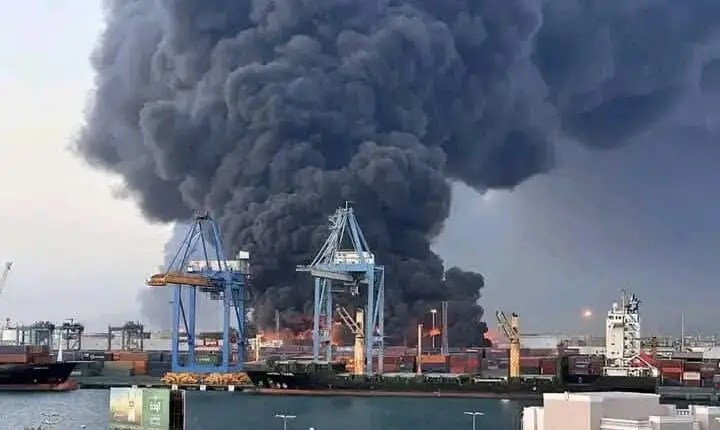Sudan’s National Security Is a Red Line: Cutting Ties with the UAE Is Not Enough

Sudan Events – Agencies
The steps recently taken by Sudan’s National Defense and Security Council in response to the UAE’s targeting of Sudan—its people, land, and resources—by fueling the war ignited by the rebel Rapid Support Forces (RSF), acting on behalf of the UAE in return for material and moral support, are timely and reflect an overdue recognition of the UAE’s actions over the past two years. It seems as though the UAE is trying to repeat the infamous “reward of Samar,” despite Sudan’s considerable contributions to the rise of the UAE, offering its most qualified and dedicated human resources. Even the most pessimistic observers could not have imagined the UAE would act with such hostility toward Sudan, as it has through this prolonged, destructive war.
Sudan’s National Security Is a Red Line
Indeed, Sudan has severed diplomatic relations with the United Arab Emirates—a move that, while delayed, is better late than never. However, this step alone is not sufficient. Sudan’s national security is a red line, and thus additional preventive, defensive, and, if necessary, offensive measures must be taken. It is imperative to address security gaps, as any lapse could have grave consequences. This necessitates decisive action against sleeper cells operating in support of the rebel militia. Measures must be implemented to expose collaborators, who should be dealt with vigilantly. What occurred in many areas, most recently in Al-Nuhud—the capital of the northern and northwestern sector of West Kordofan State—demonstrates how collaborators and sleeper cells contribute to escalating violence, resulting in loss of life, looting of markets, and theft of both public and private property.
Further Strengthening Sovereignty
The severance of diplomatic ties with the UAE must be followed by additional actions to safeguard Sudan’s territorial integrity and reinforce its sovereignty. Legal and diplomatic measures must be taken not only to expose the UAE’s role, but also that of all countries complicit in this conspiracy—a full-fledged crime against a nation that had shown goodwill toward them. Sudanese authorities possess substantial evidence and testimonies implicating these parties, including Libya’s General Khalifa Haftar, whose movements are dictated by the UAE. Similarly, South Sudan, once bound to Sudan by blood, geography, and alliances, now shamelessly acts against the country it once belonged to. The same applies to Ethiopia, whose Prime Minister Abiy Ahmed appears to have forgotten the bonds between two peoples who once shared shelter and resources in Sudanese refugee camps, where integration was so deep that Sudanese humor dubbed certain neighborhoods in Khartoum as “Ethiopian communities.”
As for Chad, it seems its leadership is unaware of Sudan’s strategic depth. The survival of Chad’s regime hinges on maintaining diplomatic relations with its neighbors; any destabilization could have serious repercussions. President Mahamat Déby should have chosen a path that spares his country the consequences of this war, which will undoubtedly affect Chad due to its shared borders, population overlap, and traditional trade ties with Sudan.
Regarding the Central African Republic, its leadership should refrain from involvement in the conflict, as the well-known saying goes: “People in glass houses should not throw stones.” Other neighboring states, like Niger and Uganda, have entangled themselves in a firestorm they will not easily escape. Kenya, meanwhile, saw its president defy the country’s norms and laws, leading to widespread backlash in parliament and his cabinet, effectively signing the end of his political career by aligning with the UAE, which backed the rebel RSF and sponsored the Nairobi conference that sought to establish a parallel government.
A State of Alert
There must be continued maximum alert to complete the liberation of all areas of Kordofan—its southern and western regions. Only then can Darfur be purged of the remnants of foreign Arabs brought in by the UAE to advance its aggressive agenda against Sudan’s land and people. The final defeat of the rebel RSF in Kordofan and Darfur would mark the beginning of peace and stability in Sudan. Any attempt at an incomplete peace would only resurrect a dying militia and embolden political parties that covertly support them, aiming to return to power—something that is virtually impossible. As the saying goes, “When I witnessed the treachery of our times, I realized that the impossible consists of three things: the ghoul, the phoenix, and a loyal friend.”
Source: Sudanese Echoes



